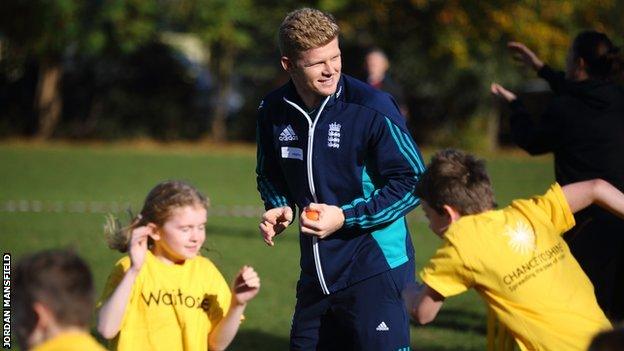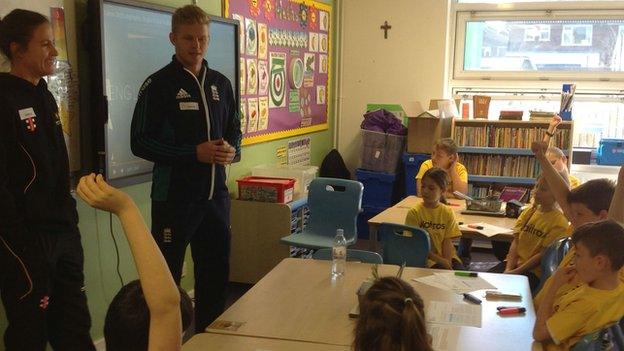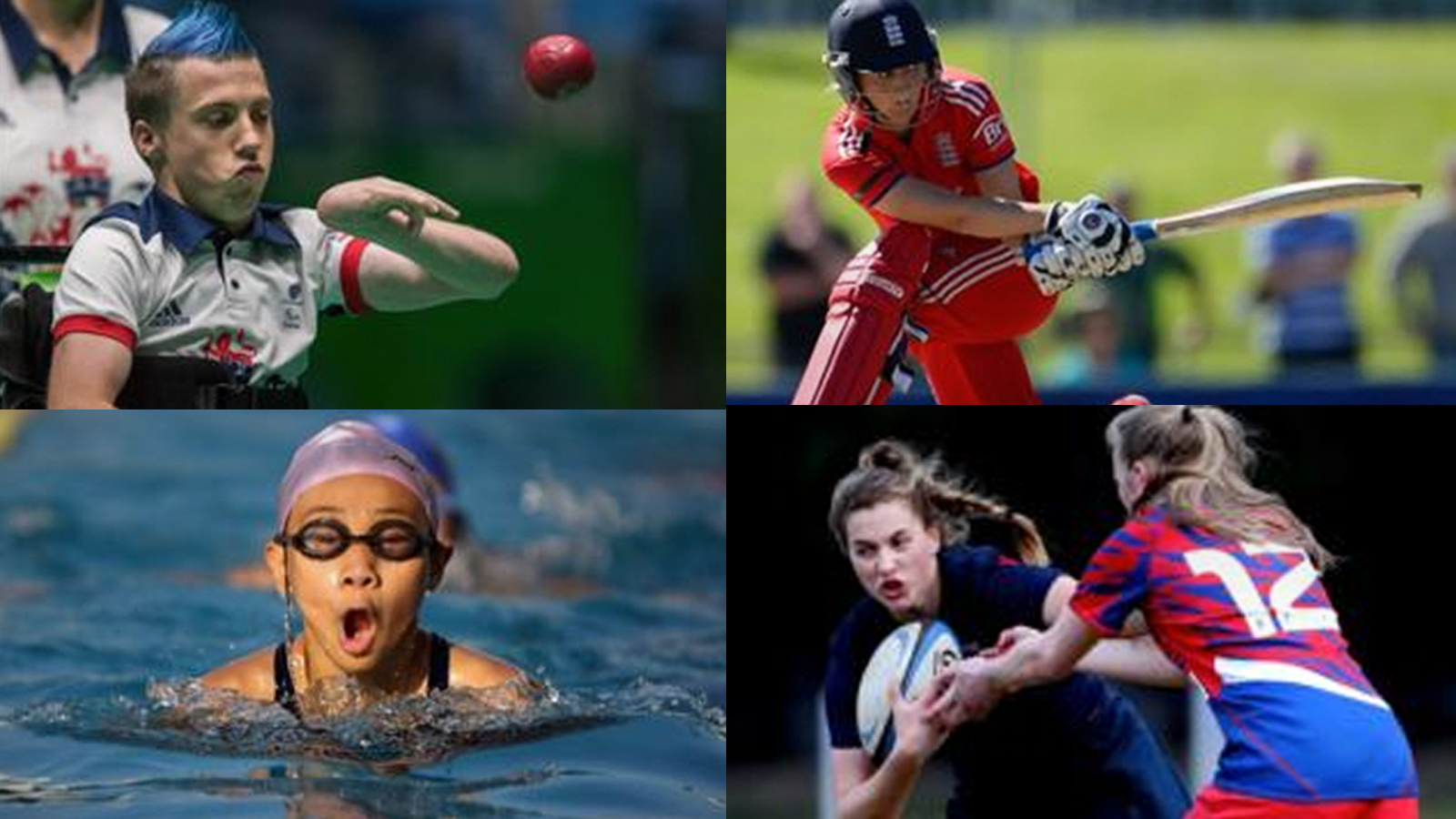Chance to Shine: ECB set to double its investment in future of cricket
- Published

England's Sam Billings helped to run a coaching session at St Mary and St Peter's Primary school in south-west London
The England and Wales Cricket Board (ECB) is doubling its investment in primary schools in a new deal with the Chance to Shine charity.
From October 2017 at least £2.5m will be donated annually in an arrangement the charity describes as a "game changer".
Chance to Shine was set up to tackle a crisis of participation in state schools. After more than a decade of live cricket on pay television, many in the sport are concerned about the level of exposure the sport has in Britain.
The ECB believes that viewing habits are changing and they want to reflect the way young people engage with media. But investing money into participation is increasingly significant.
Chance to Shine chief executive Luke Swanson believes the new investment will allow the charity to reach an additional 200,000 children a year: "This money is about state primary schools and it's really saying that the bedrock is working with children and giving them a great first experience of the game.
"We know that 60% of children who try cricket at school say they like the game. If you don't try cricket at school only 1% say they like the game."
Matt Dwyer, the ECB's director of participation and growth, said: "The game is really aware of our relevance to kids, and now we're saying 'right, what are we going to do to make sure every child has the opportunity to be involved in the game?'
"We've got a great calendar of events coming up [the Champions Trophy and Women's World Cup will both be staged in England in 2017].
"With the focus at a local level with participation, I can't see why in five years time we can't be England's favourite sport."
England limited-overs batsman Sam Billings helped to run a coaching session at St Mary and St Peter's Primary School in south-west London. He says he benefited from playing a wide variety of sports during his schooldays.

England cricketers Lydia Greenway and Sam Billings inspire the next generation of cricketers
Billings said: "Every career starts at the bottom level so it's fundamental that these kids get the chance to play many sports, especially cricket. In many schools around the country its football dominated, cricket is not on the curriculum.
"Certainly in Bangladesh with England we had this conversation. I think it's about a 50/50 split in terms of who went to state and independent schools, and club cricket plays a massive role too in getting that relationship right. Club cricket was a great benefit to me growing up but again, it starts with the schools."
Those pushing cricket in state schools believe it is unique in the range of physical motions it promotes and also in the way the spirit of the game is enshrined in its regulations.
Lydia Greenway, who played for England for 13 years, also thinks Chance to Shine has pushed gender equality. Many of the leading female cricketers have been employed by the charity as coaches.
"Forty-six per cent of children going through the charity have been girls," said Greenway.
"To have that so close to half-and-half is amazing. You have female coaches going into the schools and girls can say, ' I can actually play cricket'.
"The male coaches are brilliant but it breaks down the barriers a bit more just having the female role models at the top end of the game going into schools."
The new investment from the ECB is set to begin in October 2017.
- Published18 October 2019

- Published13 August 2018
